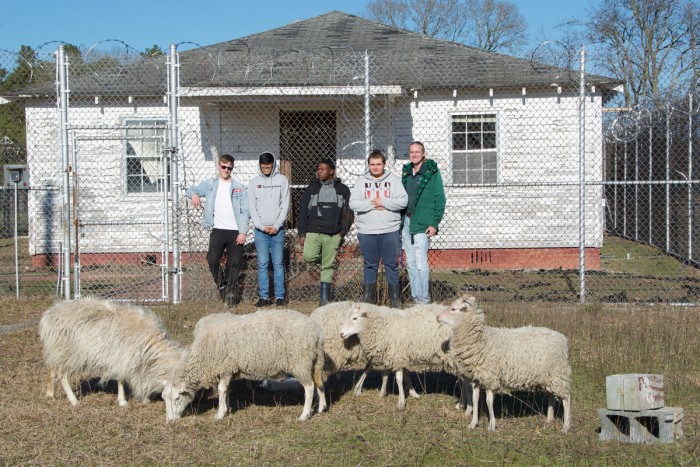
Big things are happening in our own backyard.
While the counties of Scotland, Richmond, and Columbus, North Carolina, together make up one of the most underfunded regions in the Southeast, Noran Sanford, the founder of Growing Change, has created an amazing opportunity to transform the lives of youths and flip abandoned prisons into sustainable farms. In the midst of COVID-19, I had the chance to sit down--via Zoom, of course--with Noran and two youth leaders in the organization, Ravin and Norman, to discuss the past, present, and future of Growing Change.
Noran is no stranger to youth's struggles: as he began his career as a therapist, he witnessed countless futures stripped away by a flawed system. How could one man solve these difficult problems that have persisted across generations? By his faith and determination, Growing Change was born.
At the birth of the organization in 2011, Noran's team worked with 24 young men who met 3 criteria: they had been kicked out of their home, kicked out of their school, or had been put on probation before the age of fourteen, what Noran calls the "Unholy Trinity of Risk Factors." He sought a method to keep these youths out of the system entirely and change their futures.
The Leaders of Today
Noran's prior life experience gave him the perspective he needed to truly put those that he was serving first, placing the pilot program participants into central leadership positions. The results? Over 5 years, Growing Change had a 92% success rate in keeping young men out of the North Carolina correctional system.
About his youth-led approach, Noran says he immediately knew the organization would have a "very limited perspective" if it were "just the old folks" planning and leading. High school and college-age students are constantly told they are the leaders of tomorrow. Noran rejects this notion. Rather, he believes they are the leaders of today. Both Norman and Ravin agree that the youth at Growing Change are given the autonomy they deserve. Norman echoed how students are in a transitional state, told they are adults but not feeling fully empowered in their voice. At Growing Change, he says, things are different and "at the end of the day, we are the ones who make the decisions."
Reclaim opportunities are forgotten people and places. Attain education. Sustain personal and environmental wellness for surrounding communities. These phrases drive Growing Change's master plan; with over 300 abandoned prisons in the United States, Growing Change hopes not to expand, but to create a replicable model and a prison flip toolkit for other communities with growing numbers of abandoned prisons.
COVID-19
The pandemic has presented both opportunities and challenges for Growing Change; on a farm, social distancing is possible with much of the work being done in small teams or individually. Furthermore, they have found an opportunity to help alleviate the food crisis, partnering with Sand Hills Agricultural Innovation Center, by creating markets for local produce growers.
One of our final topics was how followers of PEA can support the mission of Growing Change, especially now. Ravin and Norman agree that sharing the wonderful work they are doing on social media is beneficial and remind us to be on the lookout for the upcoming DIY series on YouTube highlighting their products.
Growing Change is a 501(c)(3); if you find yourself moved by their work for decarceration, food justice, and health justice, donations made to Growing Change and similar organizations will go a long way. I will leave you with Noran's final words. "This is a pivotal time for our nation; please lean in and support, if you are able." If you would like to learn more about Growing Change's programs and products, click here.
Photo by Christina Cooke from Civil Eats.